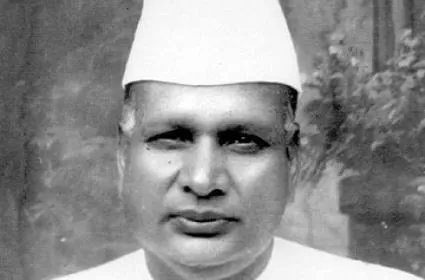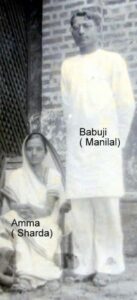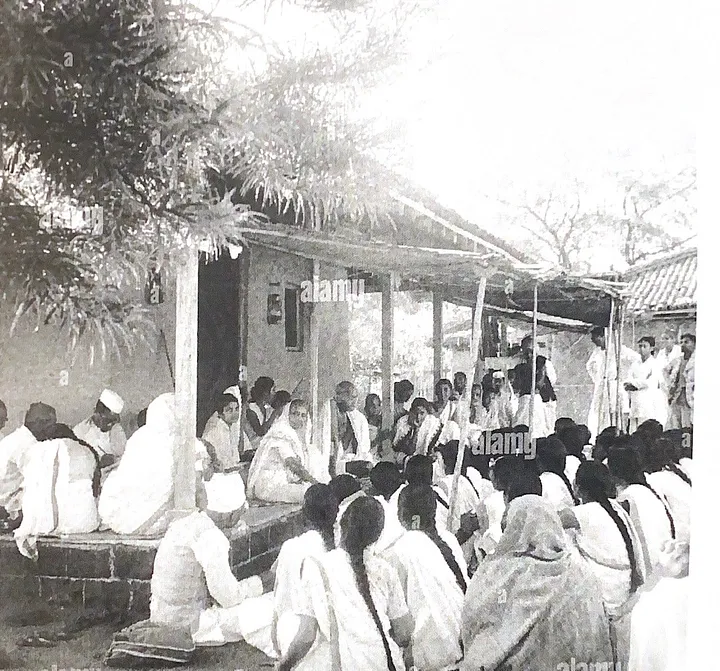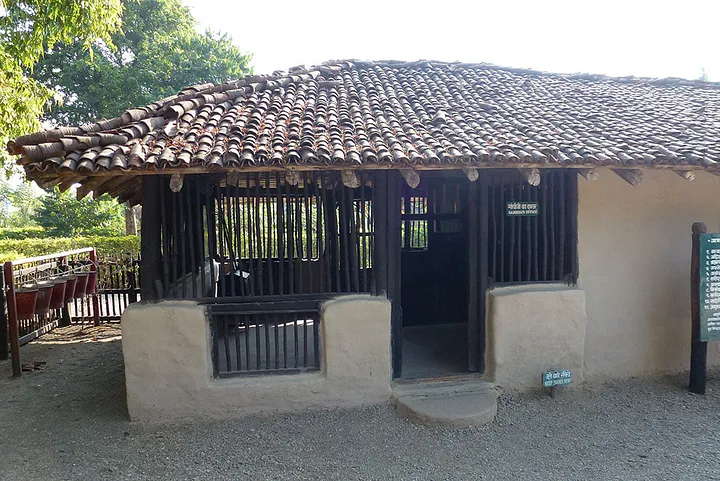My mother’s tea-drinking habit in a no-tea zone (boycotted British goods) at Wardha Sevagram greatly helped create a solution for Mahatma Gandhi and Jamnalal Bajaj.
My father’s side led an extreme nationalistic Bharatiya (Indian) and Gandhian lifestyle. My mother’s side was patriotic, but my maternal grandfather was the Diwan of Gondal — for them, Gandhian thinking and lifestyle disrupted the Maharajas and British.
My paternal grandfather, Nautamlal B. Mehta, told my maternal grandfather, Govindjibhai Kamdar (Parekh), explicitly that Sharda (my mother): in our home, your daughter will only wear khadi (handspun cotton) to which my maternal grandfather very happily agreed.
However, my mother was very uncomfortable. She begged her mother and said: “Ba hu laakdi jevi chhu, aa bhare khadi no sadla pehri ne hu ubhi pan nahi thau” (translation: I am very slim. How would I handle such a heavy khadi sari? I will not be able to stand.) My maternal grandmother communicated through my maternal grandfather to my paternal grandfather about my mother’s problem. My paternal grandfather was happy to help her. He arranged for a few khadi silk weavers from Andhra Pradesh to come to Jetpur and they weaved all her saris in a lightweight khadi silk (for some, wearing a khadi sari is like draping 6 years of denim around you).
After marriage, my paternal grandfather sent my parents to Wardha to stay a week at the Gandhi Ashram with Gandhiji. My mother had a morning tea-drinking habit. In Jetpur, her in-laws compromised and allowed her to drink tea, but it wasn’t accepted in the Gandhi Ashram and was impossible to get. After a few days, my mother complained to my father about her discomfort of not having tea in the morning. My father said very clearly that tea is not possible here. She asked him if it was okay if she asked Mahatmaji. My father was very nervous but agreed for her to ask Gandhiji.
That day during prathna sabha (prayer time), she stood up and requested Gandhiji, “Bapu mane savare cha pivani tev chhe” (translation: Bapu I have a habit of drinking tea in the morning). Gandhiji laughed and said, “Sharda ashram ma chha nahi male” (translation: Sharda, you will not get tea in the ashram).
Prathna Sabha (Prayer Time)
This is Wardha ‘Sevagram’ Ashram. This picture is from the Ashram website. This kind of setup was there when my mother asked Gandhiji to allow her to have tea in the ashram. On the right side of Mahatma, sitting, is Kasturba Gandhi. There was no electricity in the Ashram, only lanterns, which you can see hanging. The people who have work in their minds do not care about outside comforts or resources. Mahatma Gandhi must have some unique and unexplained energy to keep people’s minds and bodies invested in his ideology. He had no drama of luxury. He was the poorest of the poor, he had nothing to offer, but he had his path to take Indians to new levels. No leaders had this kind of human support in the history of humankind.
Later, in the same prathna sabha Gandhiji said “Sharda ne cha pivani tev chhe, ashram ma cha thai nahi, koi biji rite Sharda ne cha ni babat ma madad kari sako chho? (translation: Sharda has a habit of drinking tea. In the ashram, we have a no tea rule, can anyone help her?). The great Jamnalal Bajaj, grandfather of Rahul Bajaj and father of Kaman Nayan Bajaj, lifted his hand and said: “Bapu, I will bring tea for Sharda every morning in a thermos,” and he did for the next 6 to 8 days.
The greatness of Gandhiji and Jamanlal Bajaj — they all had strict rules, ethics, and morals, but they also gave respect to the situation/circumstances while finding a solution without disrupting the system.
Wardha ‘Sevagram’ Ashram
This is the Sevagram Ashram. Gandhiji was cautious about using public money for his comfort or his agenda. You can imagine in summer or winter, this is where he and his followers lived and worked. As you can imagine, this must’ve really required dedication and patriotism for a free India. Politicians who claim they are here to serve people spend millions of dollars on tents and decorations.




